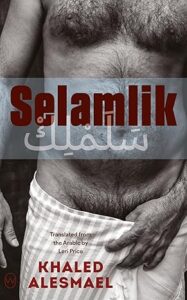(Reviewed by JD Jung)
![]()
“I am so glad I was born in Syria and get to be young in Damascus, no matter the fear and danger. I love Damascus even if she is cruel to me.”
Our narrator Furat lives in the shadows and has always had to hide his sexuality. There are places where gay men frequent in Damascus, but they are not in the open. It gets progressively worse with the crackdowns of dictator Bashar al-Assad.
When the Syrian civil war breaks out in 2011, life is dangerous for all citizens, not just gay men. Furat, who is in his early 20’s, finds himself as a refugee, and details his treacherous journey from Syria to Turkey, eventually ending up in Sweden.
Selamlik is a stirring, autobiographical novel that brings to light the intersection of identity, survival, and resilience. Written in poetic prose, the story captures the harrowing realities of being a gay man in a repressive society, and more broadly, the universal struggle of refugees seeking safety and dignity in a world often unwilling to accommodate them.
One of the novel’s strengths lies in its portrayal of Furat’s inner world. His changing relationship with the Quran from childhood to the present accentuates the complexities of faith for someone navigating their sexual identity in a deeply religious culture.
This story is interspersed with explicit homoerotic fantasies, especially at the end. Though it does not resonate with me personally, it does not overshadow the perilous trials that refugees, and particularly gay refugees must endure.
While Selamlik seems deeply personal, its themes are universal. It highlights the resilience of those forced to flee their homes and reminds readers that true acceptance requires more than tolerance—it demands recognition of shared humanity and the right to live authentically. A must read.


